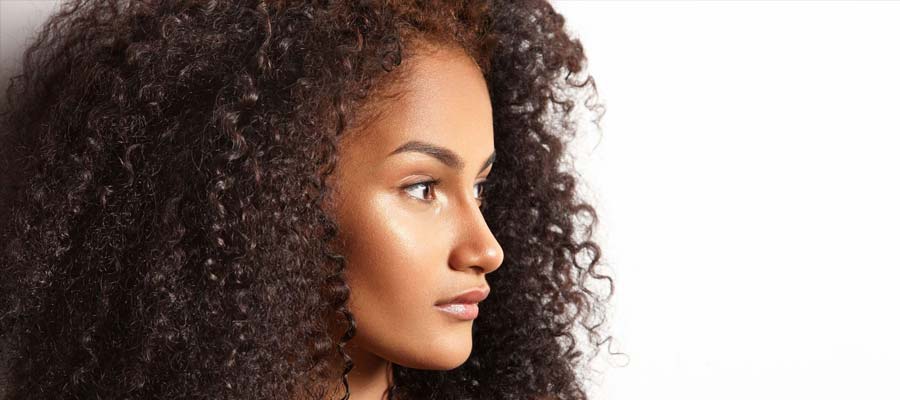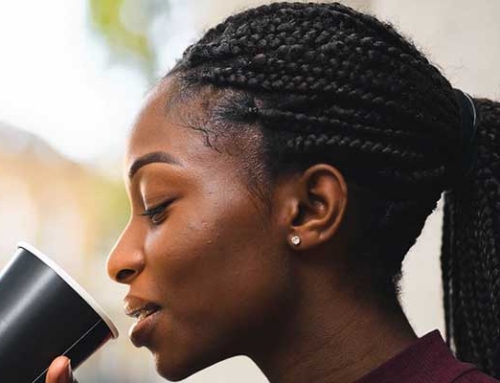There is nothing as embarrassing as white flakes on your black jacket. Those little pesky white flakes leave evidence of your dry scalp or dandruff problems for everyone to see. This is not only a problem for women with natural hair; no; these white flakes are an issue for EVERYONE, male and female likewise. While dry scalp can be easily treated, dandruff is not so easy to get rid of since this is a more serious skin condition caused by seborrheic dermatitis, eczema, psoriasis or Malassezia, which unfortunately affects a large number of the population. Dry scalp results from dehydrated sebaceous glands; these are the glands that produce the natural oil for our scalps. This dehydration can occur if you live in cold climates or if you don’t drink sufficient water. You can combat dry scalp by adding essential oils (olive oil, castor oil, and coconut oil or jojoba oil) to your hair care regime. In this blog we will discuss some of the simple ways to treat dry scalp in natural hair.
Some Ways to prevent or treat Dry Scalp in Natural Hair
APPLE CIDER VINEGAR
The most popular vinegar in the natural health community is Apple Cider Vinegar. It is a helpful health tonic that has shown promise in helping many health issues. Apple Cider Vinegar contains anti-inflammatory properties which help to kill the yeast that can cause itchy dry scalp. It helps to remove product buildup and restores the balance of pH levels to the hair and scalp which may relieve the itching and dryness.
Method: mix equal portions of apple cider vinegar with water and apply this mixture directly to your scalp. Let it sit for a few minutes before you wash it out, then shampoo with normal water, apply conditioner, and finally the LOC method. You should try this remedy at least once each week.
NATURAL & ESSENTIAL OILS
Keeping the scalp clean and moisturized can help prevent dry scalp. Here are a few natural homemade remedies that you can try, to get rid of this problem and to maintain healthy hair and scalp. If you live in cold climates, you will find that during the winter months your scalp is drier than usual. One of the key things to combat dry scalp is oils.
Natural, anti-fungal, and antibacterial oils, like coconut, olive oil, and tea tree oil can soothe an itchy, dry scalp as they absorb easily into the scalp. Since Jojoba oil mimics our natural sebum it can also help to hydrate your scalp and increase shine to our hair. Castor oil is also great to combat dry scalp.
- Peppermint Oil helps to balance out the pH levels and helps to eliminate dryness on the scalp which can cause itching.
- Tea Tree Oil should not be used on its own at full strength, it is best when used along with carrier oil such as grapeseed oil, sweet almond oil, jojoba oil, etc.
Method: After thoroughly shampooing and conditioning your hair, apply the oil to your scalp and allow it to soak in. Massage it into your scalp using your fingers and leave for a few minutes. Style your hair as desired.
HOME REMEDIES
- Lemon Juice can be used as an antiseptic; it also removes excessive dead cells. Using fresh lemon juice add honey and mix well together, massage into your scalp and after a few minutes, rinse out with shampoo and conditioner.
- Honey acts as anti-inflammatory and anti-viral which is effective to treat a dry scalp. Mix a half cup of olive oil with 2 teaspoons of honey; apply this mixture to your scalp and massage gently. Let it sit for about 10 minutes then rinse out with shampoo and conditioner.
- Mayonnaise is rich in proteins; made from eggs, oil, and vinegar which nourish the hair and helps to cleanse the scalp of any bacteria or fungus causing itching and dryness. Apply a half cup of mayonnaise on dry hair, massaging into the scalp thoroughly, cover hair with a disposable shower cap for about 20 minutes then rinse out with shampoo and conditioner.
There are others such as Avocado, Aloe, Bear, etc.; even our diet can affect our hair and skin. But remember, one most important tip to all that was laid out above, you must use a good deep cleansing shampoo that is sulfate free, since sulfates remove the natural oils and moisture that is required in your hair shaft and your scalp.






